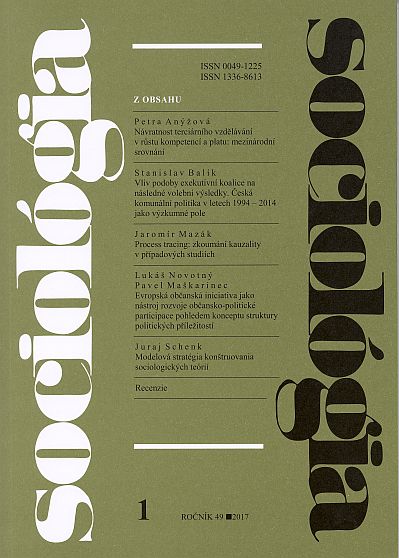Evropská občanská iniciativa jako nástroj rozvoje občansko-politické participace pohledem konceptu struktury politických příležitostí
European Citizens’ Initiative as a Tool for Advancing Civic/Political Participation: A Political Opportunity Structure Perspective
Author(s): Lukáš Novotný, Pavel MaškarinecSubject(s): Civil Society, Sociology of Politics
Published by: Sociologický ústav - Slovenská akadémia vied
Keywords: European Union; civic society; European Citizens’ Initiative; political participation; political opportunity structure;
Summary/Abstract: European Citizens’ Initiative as a Tool for Advancing Civic/Political Participation: APolitical Opportunity Structure Perspective The European Citizens’ Initiative (ECI) is the institutional innovations that have sought to enhance the participatory nature of EU politics. This paper demonstrates that the current form of ECI is not a tool for active participation of citizens in shaping of the European politics. On the contrary, the practice of the ECI is totally at odds with the reasons why this tool was anchored in the Lisbon Treaty. Similarly, a high number of rejected registrations suggests, that the Commission itself sees that it is unable to solve the problem, or it is not willing to agree to enforce fundamental changes. Actually, there were registered only those initiatives that was focused on particulars. Thus, although the dynamic multilevel model of political opportunity structure might suggest that the ECI institutional settings is an example of an open international (European) political opportunity structure, our analysis showed, that, in practice, this is markedly closed political opportunity structure, mainly due to the influence of the Commission. Significant decrease of submitted ECI, after three years since the introduction of this institute, confirms that the initial euphoria of the involvement of citizens to the decision-making mechanisms of the EU does not take place, and instead of strengthening democratization and the creation of a common European political space, the ECI may act more in the direction of further deepening of the democratic deficit and alienating European citizens from the idea of a common Europe.
Journal: Sociológia - Slovak Sociological Review
- Issue Year: 49/2017
- Issue No: 1
- Page Range: 81-108
- Page Count: 27
- Language: Czech

